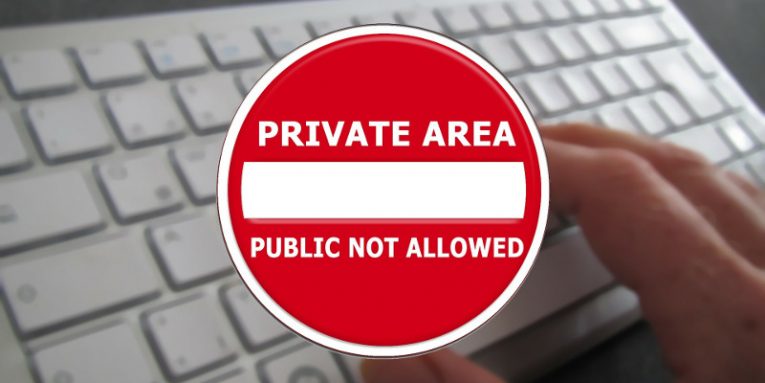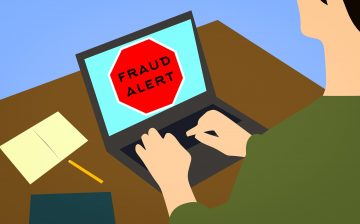How Private Is Your Private Information?

We live in a world where our days are filled with news of cyberattacks and exposed personal information, and you have probably started wondering whether anything on the World Wide Web can ever be classified as private. Well, we've got an answer. Most of it can't.
The fact that you're reading this article means that you use the Internet, and this means that you have at least one online profile that contains some of your personal information. In the best-case scenario, your password is not stored in plain text, but everything else is completely readable, and there are people who can access it, so it can never be considered private. The important question is what these people want to do with it and whether they are authorized to do it.
Sometimes, even when you stick to every single piece of security advice you've ever heard, you still can't ensure that your data remains in safe hands. This is because in almost all cases, it's not all up to you. When it comes to online security, it's all about mitigating the risks, and we'll now discuss a few things you can do to minimize the chances of your private data falling into the wrong hands.
Table of Contents
Use trusted providers only
It is true that most of our everyday online tasks require an account, and you probably create new profiles fairly often. A lot of you fail to realize, however, that by creating an account, you not only agree with the finely printed Privacy Policy (which you haven't read), you also trust the owner of the website to safely store and protect your data. And usually, you don't really think about whether they deserve such trust.
Cybersecurity experts rarely deal with absolutes. They'll tell you that no company can guarantee that your information will be protected from prying eyes. What they'll also tell you, however, is that a big, established name like Amazon, for example, has spent years and quite a lot of money on making its systems as secure as possible. By contrast, John from next door who hired a pimply-faced teenager to set up an online shop probably focused on other stuff that could bring him more immediate and tangible gains.
Generally speaking, smaller websites are often more vulnerable to attacks. We're not saying that you should never trust them. We're saying that you must feel confident that they've done what they can to protect your information.
Don’t reuse your password
Of course, it's not as simple as that. Even when vendors think that they've done enough to protect your data, a sophisticated cybercriminal could come along to prove them wrong. Your information, including your username and password, could end up falling into the wrong hands, and it's important to ensure that if it does, no other accounts will be compromised. The only way to do that is to ensure that all your passwords are completely unique and random.
Don't for a moment think that, having obtained your login credentials, the crooks won't try them out on other websites. Downloading a database full of stolen usernames and passwords is trivial. Loading them in an automated tool that tries the same combinations against other websites is even easier.
Don’t share too many things on social networks
You probably don't roam the streets shouting random facts about your life. Why do it online?
Reviewing your privacy settings on Facebook, Twitter, and the rest of the social networks you use is the simplest way of determining who has access to your information. Even if you're sure that only people you trust can see what you share, don't forget that their accounts can get hacked. When it comes to social media, it's (mostly) up to you to decide what you want to make public.
Protect your PC and stay alert
When the information is stored on the Internet, few things are under your control. When it comes to your own computer, however, the ball is in your court.
Make sure you pick a trustworthy, reliable security product for your PC. It's easy to moan about how some companies fail to protect our data, but we don't really have the moral right to do it unless we have covered our own bases. This also involves keeping your software up-to-date. More often than not, when hackers attack, they don't use state-of-the-art techniques that nobody has ever heard of. In most cases, a known software vulnerability is what lets them in. A patch to it has been available for months, but you have failed to install it.
They could also allow themselves in by exploiting your curiosity and naivety. Cybercriminals have indeed been working on their social engineering skills for a while now, and some of them are certainly clever. The thing is, if you don't let your guard down and regard everything you see on the Internet with suspicion, you should have no problems avoiding the numerous scams and the potential consequences they bring.
Ultimately, the answer to the question in the title depends on a number of different things which can't always be predicted or controlled. There are a few checkboxes you can tick, however, and you have no excuses for not doing it.









Thank you for all your help. Your service was excellent and very FAST. Many thanks for you kind and efficient service. I have already and will definitely continue visiting your site.